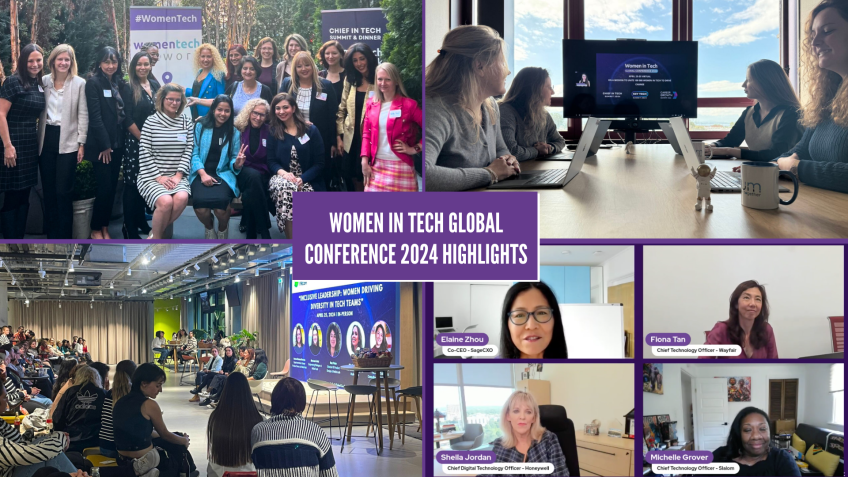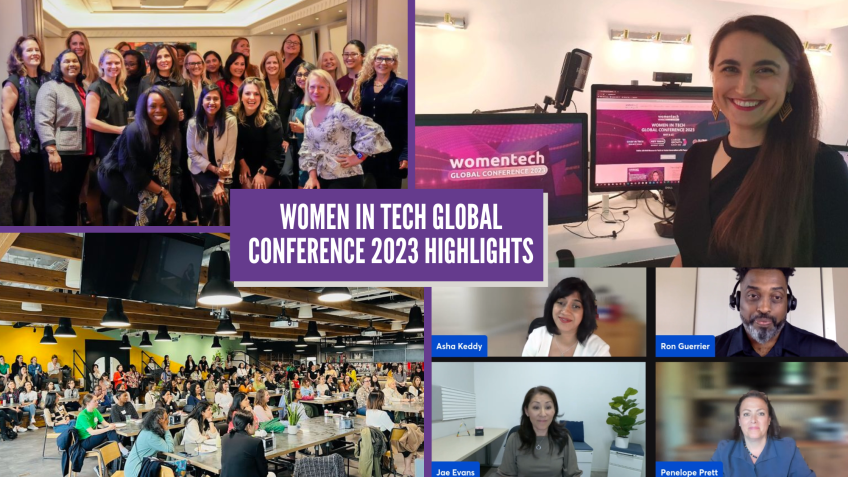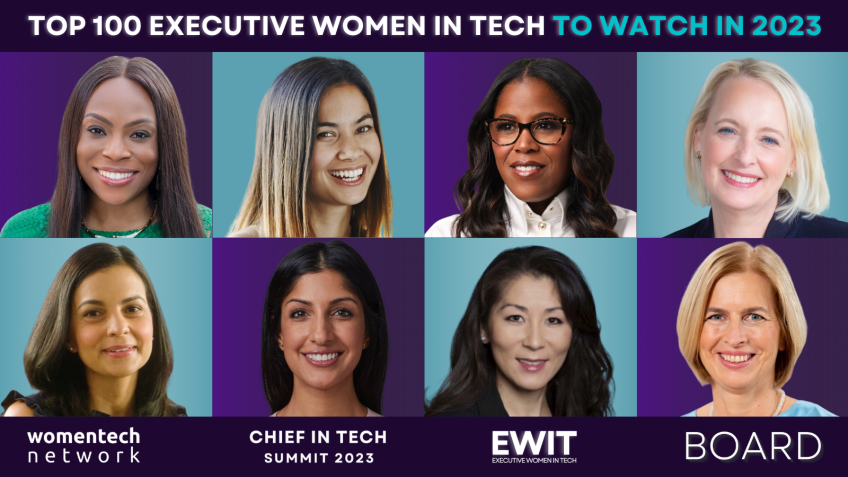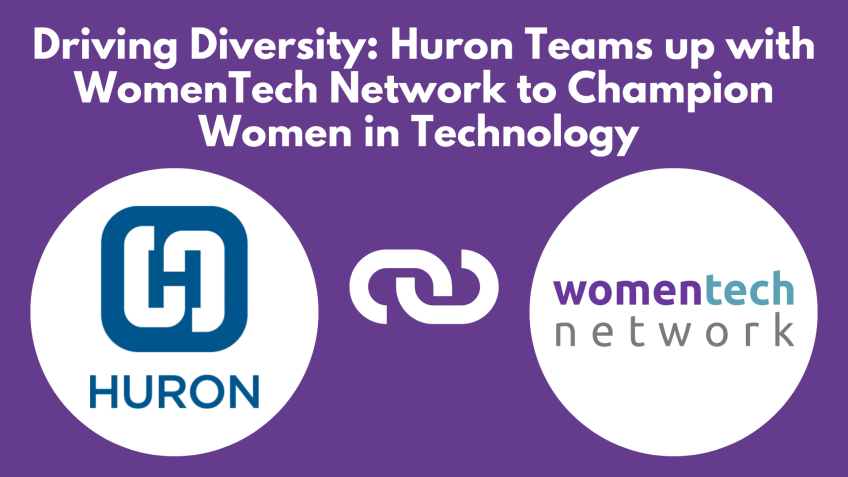Is your Interview Process (Really) Inclusive? by Daniela Herrera
Building a More Inclusive Interview Process: A conversation with Den, Director of Recruiting Operations and Diversity Equity and Inclusion at RG A
Welcome everyone. I am excited to be joining you today from New York, the original and traditional land of the Lenape people. Our conversation today is focused on inclusivity in the interview process and I am grateful to have you all aboard for this imperative discussion.
Diversity in Recruitment: The Journey So Far
Recognizing the systemic shortcomings in recruitment, organizations have begun to address diversity, equity, and inclusion issues more openly and actively. This has led to some positive developments like increased transparency, better diversity recruiting efforts, and even accommodation of flexible work conditions that were once denied to the disability and parent community.
However, despite the strides made, it appears that the progress in diversifying our workforces is slower than desirable. Recent reports reveal that while most companies are focused on diversity recruiting, only half have outlined specific goals and processes. This begs the question, without effective processes and practices, is substantial progress truly being achieved?
The Importance of Intentionality in Inclusion
Intentional inclusion is key to sustainable progress in diversity recruitment. It requires a conscious decision to challenge inequities at every step of the recruitment process and ensure that inclusivity is embedded in all practices. This might mean disrupting existing systems that, while functional, fail to adequately accommodate diversity.
Getting Started: Building an Inclusive Team
- Open and Honest Self-Assessment: Consider what your current team looks like from a representation perspective. Identify what's missing and communicate these findings to your recruiting team. This sets the stage for directing your intentional recruiting efforts towards fostering greater diversity.
- Guard Against Biases: Biases can easily seep back into the recruitment process, hence the need to regularly review your processes and make necessary adjustments along the way. This could be done by running candidate surveys or working with external consultants.
- Cultivating Flexibility: One way to guard against biases and promote inclusivity is by cultivating flexibility in your processes. This is necessary because each company, team, and individual is at a different stage of their diversity education journey.
Although deconstructing long-standing practices might seem daunting, there are certain actionable steps that can be taken to make the interview processes more inclusive. Some of these include reviewing the necessity of certain job requirements such as a college degree for certain roles, pausing or eliminating referral programs, and reviewing the company's accommodation processes.
Conclusion: A Commitment to Further Progress
While adopting intentional inclusion might require time and effort, the benefits far outweigh the challenges. From improving candidate and employee experiences to enhancing hiring goals and organizational diversity, the ripple effect of an inclusive recruitment process is far-reaching. And while perfection might be elusive, progress remains the focus and is the surest path towards achieving an authentically diverse and inclusive organization.
Thank you for joining us for this insightful conversation. Please feel free to connect with me on LinkedIn to continue the dialogue about driving diversity, equity, and inclusion in recruitment. Let's endeavor to keep learning, improving, and making progress!
Video Transcription
Hi, everyone. I'm Den. My pronouns are she and her in English and Isha in Spanish. And I'm the director of Recruiting Operations and Diversity Equity and Inclusion at RG A. I'm joining in today from New York, the original and traditional land of the Lenape people.And I wanna thank you all for coming in this morning or this afternoon. Really? Depending on where you're joining in from me today. Um And I wanna thank you as well for like showing up for more inclusive interview processes. I'm so so happy to be here with you today. So as we settle and as we get ready for our conversation and excuse the New York noise outside the window, I would love for all of you if you can. And if you have a minute to visit Native Dash land dot C A and tell me in the chat, what you've learned about the land you live in today and who were the original and traditional uh people and the location that you're in today? So go ahead and get some coffee, some tea, some water, your lunch, your breakfast, really depending on where you are and let's get started we actually have a lot of cover today. So, yeah, I think I'm not breaking any news here, but 2020 was a reckoning year for everybody, right? And companies were no exception. Organizations started to openly talk about racism, diversity, equity and inclusion as they've never done before, at least here in the United States, right?
And we kind of saw that happening in real time, like diversity data was being openly shared on companies websites, diversity recruiting efforts were prioritized for many companies pledges were being signed all over the place. And more importantly, working from home was suddenly acceptable and available for a lot of people, even though this is something that the disability community and the parent community had been asking for and advocating for so so many years and yet this is what our industry's diversity recruiting efforts looked like in 2020.
Not great right now, 2021 came and went and some progress was made especially on the diversity front. But you know, like earlier this year, a state of diversity recruiting report showed that at least 98% of companies had a specific focus on diversity recruiting, but only 50% of those companies had outlined tangible goals and processes for diversity of returning networks. So if hiring a diverse workforce is so so important, but processes and practices are not in place, are we really making any progress? So if you've been following me on social media for a while you've probably heard me say before, that diversity recruiting efforts cannot be done in isolation and it cannot be the only one thing that you do. And if you haven't been following me in social media, I don't know what you're doing. You can go ahead and find me everywhere and more importantly on linkedin I every day there. But let's, let's be honest, right? I think that if you are part of our recruiting team or if you've ever participated of uh like a recruiting process, I'm pretty sure that you know that recruiting interviewing and hiring, they have been unintentional and un inclusive by design for way too long.
And obviously, while hiring and retaining a diverse workforce is the goal or at least should be everyone's goal. I believe that these efforts are not sustainable unless we focus on equity belonging and inclusion first. And along the way, now, don't get me wrong. Many companies have been driving inclusive and um interviewing and inclusive hiring practices for a while, right? Like we know that organizations now more than ever are boosting their recruiting efforts by partnering with community organizations to meet an interview, diverse talent between a millionaire quotes.
Uh Many companies may have diversity goals and may even have fully dedicated diversity recruiting teams as well and to be fair, many companies are also training their interview teams on how to be more mindful and more inclusive during their interviews and then they might be even hosting um unconscious bias trainings and even reconsidering what their company culture looks like as a whole and honestly, about damn time, now all of those practices are needed.
They're important. But if there is one thing that I've learned working on diversity and inclusion is that sometimes it's actually OK to focus on progress over perfection. But in order to make that progress, sustainable, impactful and meaningful, we need to be intentionally inclusive about those efforts.
Now, I'm sure you're wondering like, what does that even mean? I'm just like throwing a lot of data uh your way, right? But being intentionally inclusive means to purposely and consciously make the choice to challenge inequities and embed inclusive practices in every single step of every single process that you have in place. Being intentionally inclusive is not easy. And honestly, there is no one size fits solution and honestly, it's gonna take some time, right? But at the end of the day, it is truly about disrupting some of the practices and some of the processes and the policies that you have in place today that probably worked for you maybe a couple of years ago, many years ago or even last year or that probably are working for you today from a uh a regular recruiting point of view, but are not necessarily inclusive, right?
So it is my hope that today you can take away a few examples and a few ideas that you can later adapt um and start using right after this conversation with your recruiting teams. So how do we get started with everything? Right? So the very first step might sound obvious, but if you're a hiring manager, a decision maker, uh someone from the recruiting team or the hr team or anyone that has like any proximity to power, in terms of recruiting itself, my recommendation would be to be open and on um open, honest and vulnerable with yourself and with your recruiting team.
And what I mean by that is, you could probably start by considering what your current team looks like from a representation point of view and where you would like to take that team in the future. So take a moment or as many as you need to identify what representation is missing from your team today and how your new hires could add value to your mission and vice versa. And once you figure that out, obviously, that's gonna take you some time, just make sure that you communicate those findings to your recruiting team. So together you can better identify like those organizations, those events like those intentional recruiting efforts that you would like to invest in.
Now, even if your current recruiting or interview process is or feels inclusive biases and un inclusive practices, they have a tendency to sneak back in all the time. So it is truly, truly important to make an active and conscious decision to slow down. I know that's not easy, especially if you're um part of our recruiting team, we're all working on a million different things at the same time. But to pause and review your processes, often it is important to understand what is and what is not working from your candidate's point of view and what's not working for your teams as well. Right. So there are multiple ways to go about it. Um Probably the easiest way to start is maybe running a candidate survey to assess what they really thought about meeting with you and with your team, um like learning a little bit more about what they thought about your um your interview process, the questions that they were asked like how long the process was and and the entire thing, right?
But if you do have the budget and the means I would always recommend to work with an external consultant to help identify opportunity areas like improvement, opportunity areas on your recruiting process. So a few ideas that come to mind, especially when looking into your processes and trying to identify like whether your processes are inclusive or not. Um Maybe try to understand if your current website is accessible or if your app application process is accessible, right? Or even when you are, I don't know, like scheduling interviews with your candidates, like are you offering like multiple options for your candidates to choose from like a phone call or a video call or maybe a video call with the camera off or maybe an in person meeting, if that's an opportunity for you and even if you're doing that, like, are you making sure that you are giving your candidates time in between those conversations so they can actually gather their thoughts and, and get ready for the next conversation?
Right. So I know I've said this before, but minimizing biases and un inclusive practices unfortunately, is not a one and done deal. You will need to stay like super vigilant and call things out as you move forward. So you can improve things as you move forward as well, right? And for that you your processes and your team, they will need to be as flex, as flexible as possible. Now, as we know, biases are part of our human nature, so we cannot remove them completely, but there are still a couple of ways or a couple of things that we can do to minimize those biases, right? Of course, every company, every team and every single person is a completely different stage of their diversity education effort. But again, I brought a couple of ideas uh that I'm hoping that you can start using after our call today. So get your screenshots ready. So this is obviously not a comprehensive list, but here are a couple of things that you could like consider and maybe start thinking about like maybe pay attention to your process. Are you making sure that it's a structured interview process? And even if it is, are you reviewing your behavioral questions because they actually can become very biased very quickly.
Something else that comes to mind whenever you are interviewing a candidate or whenever you are running an interview process is make sure that you're using on both ends, like from your end as an interviewer and from the candidate's point of view, that you are using a neutral zoom background that will help you minimize affinity bias, which at the end of the day is super important to do during an interview process.
And you know what we just talked about like biases and un inclusive practices will pop up literally everywhere once you start reviewing your processes, especially when you're dealing with legacy systems and policies, meaning like practices that were put in place like many years ago or a couple of years ago.
And they probably were built without like inclusion in mind, right? And I know that challenging and deconstructing practices that have been useful in the past or maybe are useful today might not actually be easy, especially if you're dealing with leadership or with executives.
So you might also need to learn how to challenge inequities and how to pivot your processes along the way. So again, I brought a couple of ideas that you can probably screenshot or that you can start using later um in the day or as you move forward with your your interview processes, right? So a couple of things that you could potentially start doing is say that you were interviewing or that you are trying to hire for a software engineer or a tech lead. Like, do you really? Absolutely. 100% need that person to have a college degree or is that a nice to have from your point of view? So if it's not mandatory, just go ahead and remove it from job description or something else that you could potentially do. And this actually requires like a full talk on, on its own. But um if your company as of today doesn't have like a very diverse representation, maybe you should start like pausing or eliminating your referral program, at least for a little bit, right? Because if your current company is not diverse, it is extremely likely that the referrals that they bring are not diverse either, right?
Um Something else again, that may need a full talk on its own, but maybe you would need to review your reasonable accommodation processes just to make sure that you believe your candidates and that you are trusting your candidates, right? So again, not a comprehensive list, but I'm really hoping that you can take a few ideas from here today. So committing to intentionality and our recruiting practices, it honestly takes time, it takes effort and sometimes I'm not gonna lie, it can be emotionally taxing, but I can assure you that if your processes are inclusive and feel inclusive, you will have a positive impact on your candidate experience, your employee experience, your interviewing and hiring goals, your attrition numbers, and of course your overall diversity and inclusion efforts.
And of course, being intentionally inclusive doesn't and honestly shouldn't end with recruiting, but it's definitely a start. And as I mentioned before, sometimes it is truly about progress over perfection. All right, I think that we do have maybe four minutes for four questions and maybe four comments on the chat. But in the meantime, that's my personal information. Please feel free to go ahead and, and uh search me online and and send me a note on linkedin or email if you would like to. Um All right, so I think that we have um a comment. Thank you all for joining. But let me see Rachel and saying like one idea to make interviews more inclusive is to use equal time a tool, track speaking, time interruptions and monologues as well as gender participation available on Google Meet for free Rachel. That's actually great to know I was not aware of, of that tool. I would, I mean, it is a fantastic tool. I would definitely wanted to give it a try. My only recommendation would also be and again, because I don't necessarily know how this stool works and and how you would use it for. But my, the only caveat that actually comes to mind is it might not necessarily be super inclusive for everyone, right?
Like say that you are meeting with a candidate that has um like someone that has a disability, right? And someone that may need a little bit more time to think about their answer before like answering your question or someone that might need a little bit more time to gather their thoughts before like answering your question. That's probably like the only caveat that comes to mind.
But overall, from the information that you share there, it seems to be like a great tool. Um All right. So any other questions, I would love to answer any questions that you may have. Um, is there a way you would educate sourcing teams to gather more diverse teams? Yes, absolutely. 100%. We only have two more minutes. Um, but yes, your sourcing team should be fully trained on how to source diverse talent between a millionaire quotes. Um, there are a lot of trainings out there. There is even a certification that they could take. But, um, yes, I would highly recommend, um, at least training them on awareness, right? Because I know that sourcing is just about like finding and sourcing as many candidates as you can. And of course, like in certain industries that might not be as diverse, um, sna is there a way to increase job application for more diverse people? Yes. Again, I only have one more minute but I would pay, um, special attention to the language that you're using on your job. Um, descriptions. And also I would be like super, super mindful and super intentional about where you're posting those jobs, right? Because if you are not getting applications from black women for instance, right? Like you might need to partner with an organization that focuses on black women in tech, right? Um As a minority woman trying to get into tech, I'm always concerned about bias.
Are you seeing my eagerness to join? Will you give me the chance? I have only one more minute. I'm so sorry early that I won't be able to answer your, your question in full. Unfortunately, there is, there is no one size fits all answer to your question because at the end of the day, I think every company and every interviewer is at a completely different stage of their like unbiased training and unbiased process. So my answer might be completely different to somebody else and that's very unfortunate. Um But at the end of the day, I wouldn't let that deter you from applying to the roles that you actually want. Um All right, I think that we are out of time. It was fantastic meeting you all. Just go ahead and, and connect with me on linkedin and we can keep the conversation going. Thank you again. Have a great rest of the day and enjoy the rest of the conference. See you.





